Protein in 250g Chicken Breast: Full Nutrition Guide
If you’re wondering exactly how much protein is in 250g chicken breast, you’re not alone. This is one of the most searched nutrition questions — especially among gym-goers, bodybuilders, and anyone tracking their macros for muscle gain, weight loss, or general health.
The short answer: 250 grams of raw skinless, boneless chicken breast contains roughly 65–70 grams of protein — an excellent high-protein food choice. Cooked weight will slightly reduce due to moisture loss, but the total protein content remains the same.
Understanding the protein content in chicken breast helps you hit daily targets, plan balanced meals, and achieve your fitness goals. Let’s dive deeper into the exact numbers, nutritional breakdown, and how chicken compares to popular alternatives like whey protein.
Protein Content in 250g Chicken Breast (Raw & Cooked)
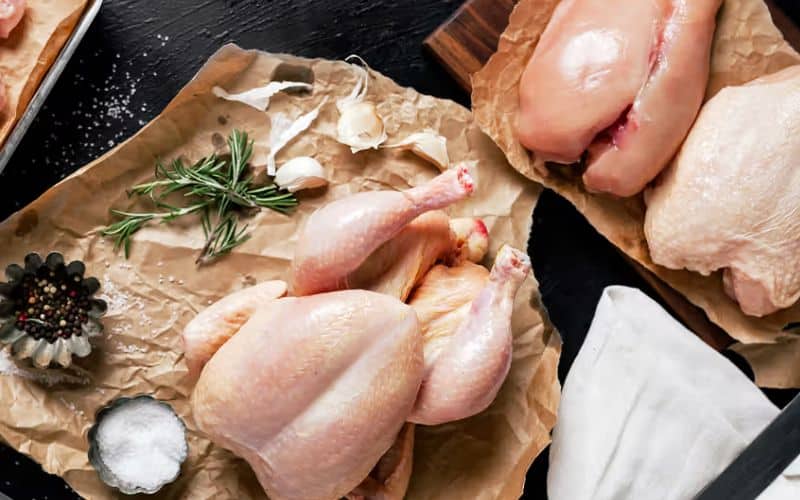
- Raw, skinless, boneless chicken breast (250g):
~ 65–70 grams of protein
(~26–28 grams protein per 100g raw) - Cooked chicken breast (grilled or baked, ~175–190g cooked from 250g raw):
~ 65–70 grams of protein — the total protein stays the same, but weight decreases as moisture evaporates during cooking.
Key point: Cooking doesn’t destroy protein — it only reduces water content, making cooked chicken more protein-dense per gram.
Macronutrient Breakdown of 250g Chicken Breast
| Macronutrient | Raw (250g) | Cooked (~190g) |
| Calories | 410–430 kcal | 380–400 kcal |
| Protein | 65–70g | 65–70g |
| Fat | 6–8g | 6–8g |
| Carbohydrates | 0g | 0g |
Summary: Chicken breast is a lean, zero-carb protein source with minimal fat — ideal for high-protein, low-carb diets.
Benefits of Adding Chicken Breast to Your Diet
- High-quality complete protein: Contains all 9 essential amino acids for muscle repair & growth.
- Low in fat & carbs: Great for fat loss and clean bulking.
- Supports metabolism & satiety: Helps regulate appetite and improve body composition.
- Versatile & affordable: Easy to cook in various ways (grilled, baked, stir-fried).
How Cooking Methods Affect Protein in Chicken Breast
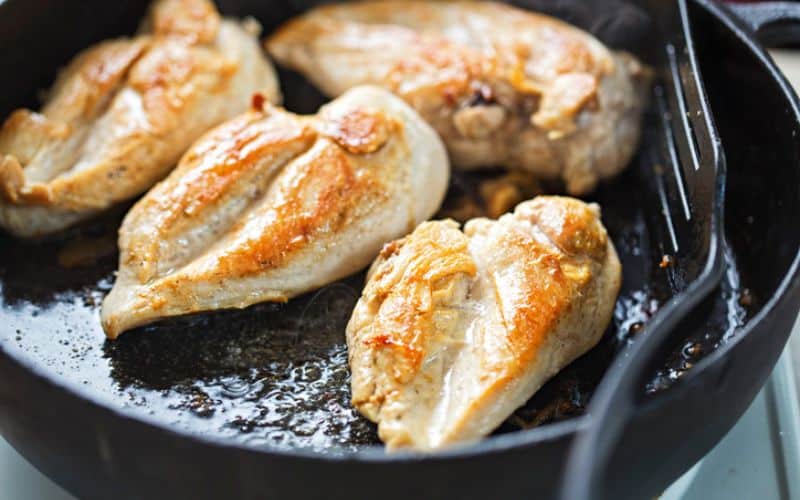
While protein quantity remains stable, cooking methods affect:
- Water loss:
Grilling or baking causes more moisture loss → higher protein per gram after cooking. - Fat content:
Frying may add extra calories from oils.
| Cooking Method | Impact |
| Grilling | Maintains protein, reduces water content |
| Boiling | Slightly more moisture retained |
| Frying | Adds fats & calories |
| Baking | Preserves protein, moderate moisture loss |
How Much Chicken Breast Do You Need Daily?
It depends on your body weight & goals:
- Sedentary adults: ~0.8g protein/kg body weight
- Active individuals / strength training: 1.6–2.2g protein/kg
Example:
- 70 kg person aiming for 140g protein/day
→ ~ 500g raw chicken breast = ~130–140g protein
Tip: Combine chicken breast with other protein sources (eggs, fish, whey protein) for variety.
Alternative Protein Sources: Chicken Breast vs Whey Protein
| Factor | Chicken Breast | Whey Protein Shake |
| Protein per serving | ~25–30g per 100g cooked | 20–25g per scoop |
| Digestibility | Slower (solid food) | Fast-digesting |
| Convenience | Requires prep/cooking | Instant (just mix) |
| Bioavailability | High | Very high |
| Additional nutrients | B vitamins, iron, zinc | Often fortified (depends on brand) |
When to Choose Whey Protein Instead of Chicken Breast
- Post-workout recovery: Fast-absorbing whey helps muscle repair after training.
- Busy schedule: No time to cook? A quick shake is ideal.
- Diet variety: Adds flexibility, especially for high-protein diets.
- Lower calorie option: Whey is leaner in calories if trying to lose fat.
Conclusion: Balance Chicken Breast & Whey Protein for Best Results
Knowing how much protein is in 250g chicken breast empowers you to plan your diet with precision — whether your goal is muscle gain, fat loss, or general wellness.
Both chicken breast and whey protein offer high-quality protein with unique benefits:
- Chicken breast gives whole-food nutrients and satiety.
- Whey protein provides fast, convenient nutrition for active lifestyles.
For best results, include both whole foods and quality supplements in your meal plan to hit your daily protein target and support optimal performance.
FAQs
How much protein is in cooked chicken breast?
Roughly 30g protein per 100g cooked chicken breast — cooking reduces water, but not protein.
Is whey protein better than chicken breast for muscle gain?
Both are excellent. Whey is faster-digesting — great for post-workout. Chicken offers more satiety and whole-food nutrition.
How does cooking affect the protein content in chicken breast?
Cooking changes water content but keeps total protein stable. The cooked portion is smaller but more protein-dense per gram.



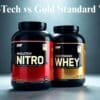
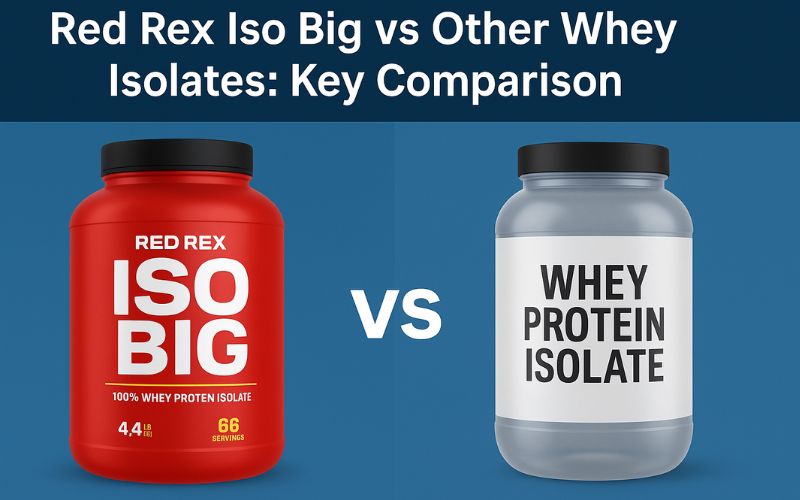
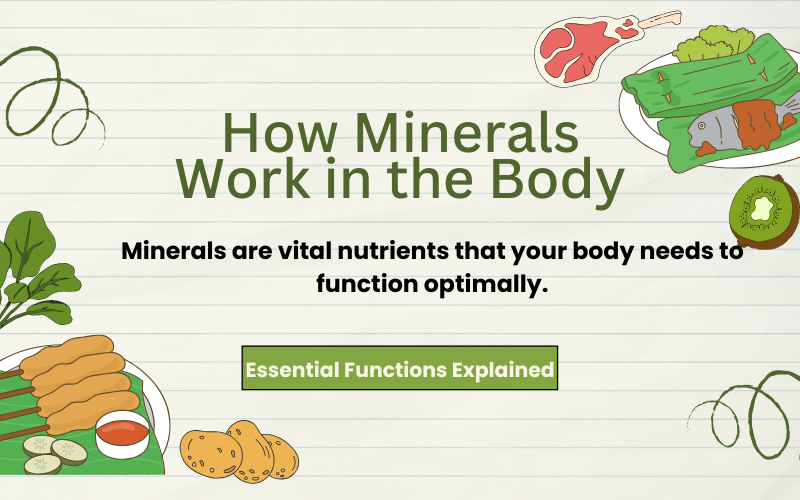
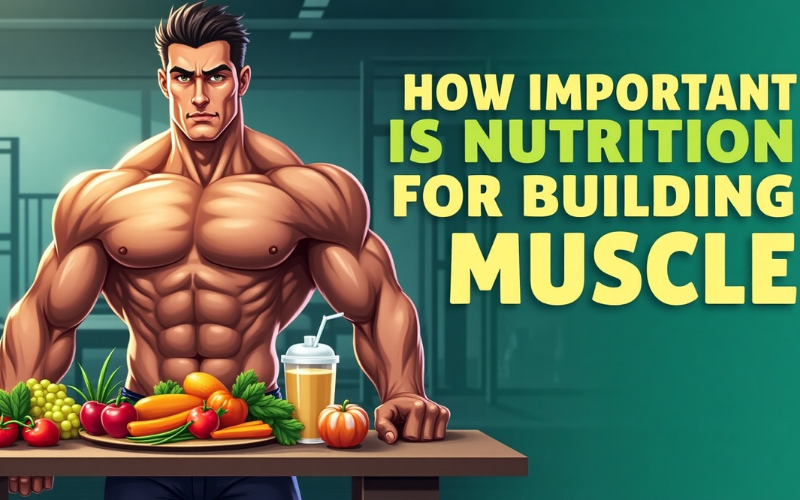

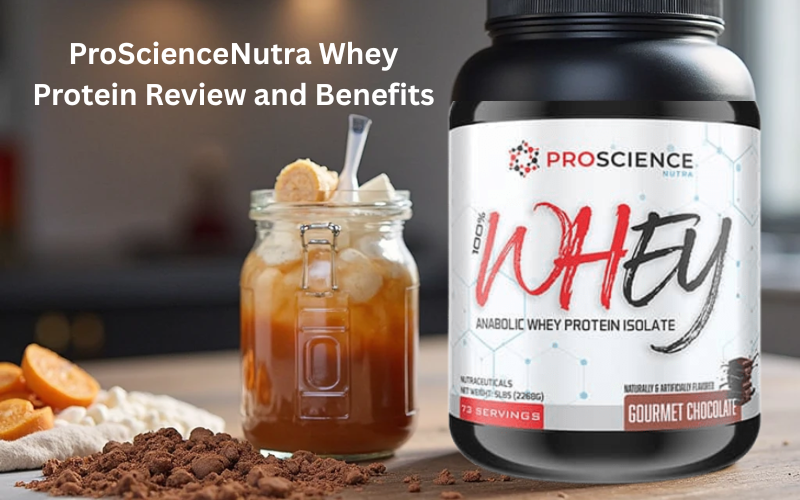
Add comment